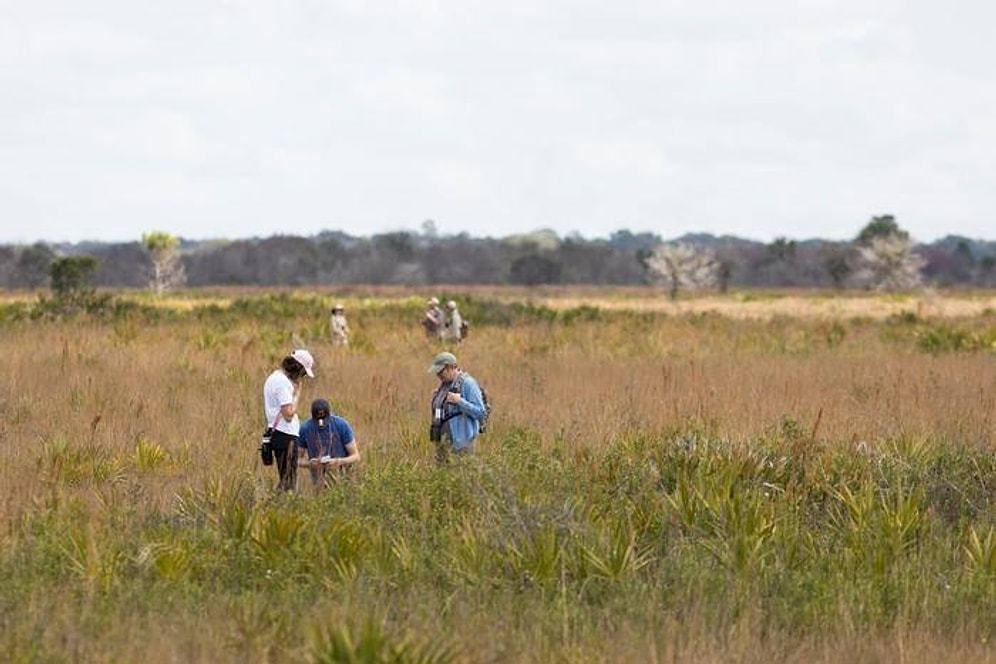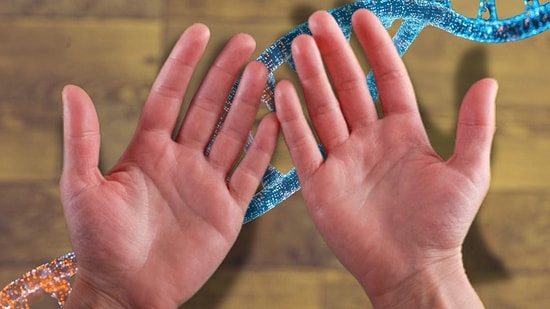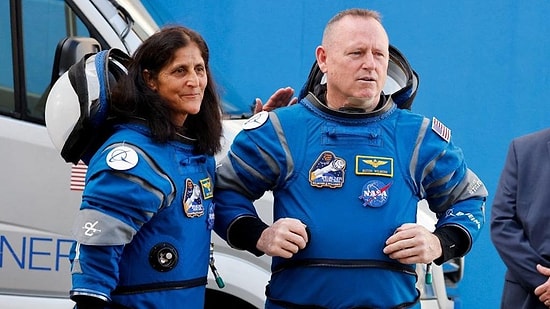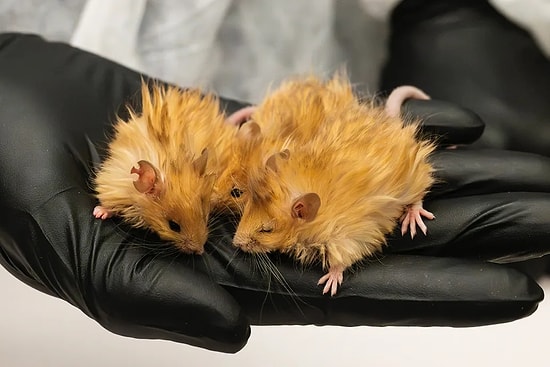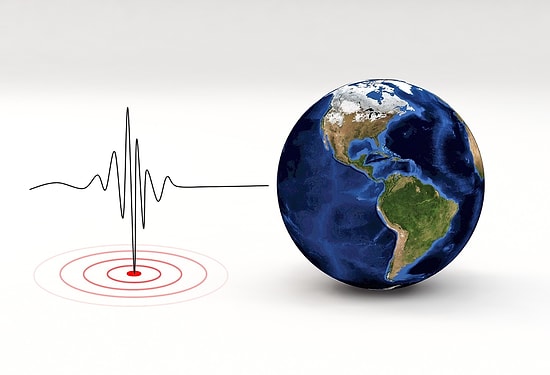The Length of Your Ring Finger May Reveal Your Talent!
Some people are naturally gifted at long-distance running, while others throw in the towel after just the first kilometer. According to scientists, the secret to this difference may be hidden in our fingers. Researchers from the University of South Australia and the University of North Dakota suggest that having a ring finger longer than the index finger could be linked to physical endurance.
Scientists Discover Super-Earth: Very Close to Earth
The scientific community is buzzing with the excitement of discovering a new potential 'Earth candidate' in space. This rocky planet, named GJ 251c, stands out due to its location within the habitable zone. The planet, which is approximately 18 light-years away, may have the potential to harbor liquid water. Researchers suggest that this discovery could mark a significant turning point in the quest for life in space.
James Webb Telescope Solves the Mystery of the “Little Red Dots”
The veil of mystery surrounding the early stages of the universe has been lifted once again. The James Webb Space Telescope had recently piqued the scientific community's curiosity with its detection of 'small red dots'. The latest research seems to have deciphered these enigmatic structures: Scientists propose that these bright spots could represent 'black hole stars', signifying the early stages of supermassive black holes.
Mysterious Interstellar Object 3I/ATLAS Moves in the Opposite Direction of Other Comets
The mysterious interstellar object 3I/ATLAS, hailing from the depths of the universe, has left scientists in awe. Exhibiting a behavior never before seen in a comet, this object formed a tail stretching towards the Sun, contrary to the norm. Observed in August by the TwoMeter Twin Telescope in the Canary Islands, a thin stream of gas and dust, approximately 6 kilometers long, was detected emanating from the core of 3I/ATLAS. This extraordinary movement was described by astronomers as a 'phenomenon that is difficult to explain physically.'Source: NTV
Scientists Develop “Super Wood” 10 Times Stronger Than Steel
Wood is one of the oldest building materials that mankind has been using for thousands of years. However, the scientific world is now completely redefining it. 'Super Wood', developed in America, stands out for being 10 times stronger and 6 times lighter than steel. It is the product of over 10 years of research and development.So how was this material produced?
NASA Astronauts Stranded in Space for 8 Months Might Struggle to Walk Upon Return
What was supposed to be an 8-day space mission turned into an 8-month ordeal for NASA astronauts Butch Wilmore and Suni Williams. Due to unexpected technical issues, their return to Earth was repeatedly delayed. Now, they are finally set to come back this Wednesday aboard a SpaceX capsule—but their challenges won’t end there. According to experts, they might have trouble walking due to weakened muscles and even painful calluses on their feet. What happens when astronauts spend too long in space? Here’s what you need to know!
When Is the Blood Moon Eclipse in 2025? Don’t Miss This Spectacular Celestial Event
The first eclipse of 2025 will occur on the night of March 13th – but this isn’t just any ordinary eclipse. After nearly 2.5 years, the world will witness a Blood Moon eclipse, a breathtaking event often shrouded in legend and referred to by some as the 'Blood Wolf Moon.' Visible to the naked eye from many parts of the world, this eclipse gets its 'blood' name because the moon will enter Earth’s shadow, causing a striking red hue due to light scattering in the atmosphere. But when exactly is the Blood Moon, and at what time? Read on to find out all the details!
Breakthrough in Blindness Treatment: Doctors Use Human Teeth as Eye Implants
A revolutionary medical procedure is giving new hope to blind patients—by using human teeth as eye implants! In a groundbreaking surgery performed at Mount Saint Joseph Hospital in Vancouver, Canada, doctors have successfully restored vision using a tooth-based implant. This cutting-edge technique aims to help those suffering from severe corneal blindness, opening the door to a potential cure. With three patients already undergoing the procedure, could this be the future of blindness treatment? Here’s everything you need to know!
The Shocking Truth About Lemons: They Were Created by Humans
Think lemons are a natural wonder? Think again! 🍋 Unlike oranges, mandarins, or grapefruits, lemons didn’t originally exist in nature—they were man-made through hybridization! 🤯 Dating back to ancient times, this sour citrus fruit was carefully crafted by humans, and its origins might surprise you. Want to uncover the fascinating history behind lemons? Let’s dive in! 👇🏻
The Reason Why We Can't Predict EarthQuakes
In order to predict earthquakes, scientists need to comprehend how they happen, what takes place right before and during the first stages. Even in today's world, these prove to be challenging as there are many factors that go into understanding earthquakes. Let's delve deeper into this process and see why the scientists cannot fully predict mother nature's tremors.
How to Unlock Your Brain’s Full Potential: 5 Proven Ways to Boost Mental Capacity
Have you ever wondered if we’re really using our brains to their fullest? 🧠 Despite the myth that we only use 10% of our brain, unlocking its true potential could change everything—from how we think to how we perform. But is it possible to stretch our mental limits? With neuroplasticity, focus techniques, and mental exercises, we can enhance our cognitive abilities and achieve more than ever before. Ready to tap into your brain’s untapped power? Let’s dive deep into how you can start boosting your mental capacity today! 🚀
Revolutionary Cancer Vaccine Breakthrough at Yale University: 9 Patients Cured
A groundbreaking cancer vaccine developed at Yale University is showing extraordinary promise, offering a potential cure for kidney cancer! In a remarkable Phase 2 trial, the vaccine has achieved complete remission in 9 patients, sparking hope for personalized cancer treatments. This immune-boosting breakthrough could change the future of cancer care forever. Read on to discover how this cutting-edge treatment is redefining the fight against cancer!
What Happens to Your Appearance When You Sleep Less Than 7 Hours?
Can just one night of poor sleep change the way you look? Absolutely! When we don't get enough sleep, our bodies send out warning signs, and the effects can be more obvious than we think. A recent study by sleep tech company Simba, with the help of artificial intelligence, reveals the startling changes in our physical appearance from sleep deprivation. 😱 Curious to know how just 7 hours (or less) of sleep can alter your look? Keep reading to see the surprising results! 👀
What Happens to Your Body While Watching Horror Movies?
Ever wondered why your heart races during a horror film? It’s not just the jump scares! Fear is more than just a psychological thrill—it triggers real biological responses. From the sudden spike in heart rate to the chills running down your spine, horror films can cause surprising effects on your body. 🎬🔬 Scientists have uncovered fascinating findings about how these films mess with our mind and physiology. Want to know what really happens to your body when you watch a scary movie? Keep reading to discover the shocking science behind it! 👀
